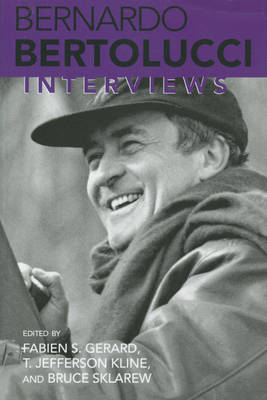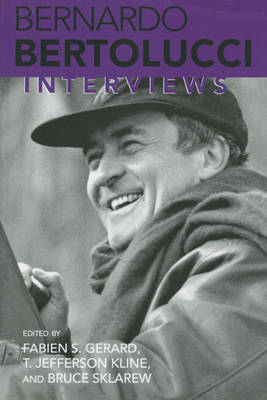
- Retrait gratuit dans votre magasin Club
- 7.000.000 titres dans notre catalogue
- Payer en toute sécurité
- Toujours un magasin près de chez vous
- Retrait gratuit dans votre magasin Club
- 7.000.000 titres dans notre catalogue
- Payer en toute sécurité
- Toujours un magasin près de chez vous
Description
"We have to teach people how to read films because when it comes to the cinema there is unbelievable illiteracy. . . especially among intellectuals." Collected here are forty years of the thoughts of one of the most influential filmmakers of our time. Although the winner of nine Academy Awards for his The Last Emperor, Bernardo Bertolucci may ultimately be best remembered for his Last Tango in Paris, which Pauline Kael called the most erotic film ever made. This volume gives a privileged view of Bertolucci's career from the days of his first radical experiments to the present, when he has become an elder statesman of world cinema. Half of these twenty-three interviews appear in English for the first time. The conversations resonate with themes that run throughout Bertolucci's work and thought from his early experimental films--Before the Revolution, The Spider's Strategem, The Conformist, and Last Tango in Paris--to his more mainstream works--The Last Emperor, The Sheltering Sky, Little Buddha, and Besieged. These conversations with Bertolucci reveal the significance of psychoanalysis in his films, the relationship between films and dreams, his early fascination with Godard and the "New Wave," his views on extremism and radical politics, and his personal search for cinematic truth. As the interviews progress through four decades of his filmmaking, they show his artistic evolution. In the earliest he is questing for answers to questions about the "fundamental cinema problem." In the latest he has come to recognize the need to please his audience. As Bertolucci speaks, he provides his autobiography, his psychohistory, a production journal of each of his films, a portrait gallery of his contemporaries, a compendium of film theory, and an ABC of ideas that range from auteur theory, Bazin, the camera, dance, editing, right on to Zen. He speaks of his early poetry, his fiercely revolutionary stances of the 1960s, and his gradual discovery that he always has to be in love with his audiences. In all, this is a stunning self-portrait of one of cinema's greatest filmmakers. Fabien S. Gerard has been working as Bertolucci's script supervisor for the last ten years and is the author of the shooting diary of The Last Emperor. He currently teaches film history at Brussels University. Bruce Sklarew, a Washington, D. C., psychoanalyst and physician, is director of the Forum for the Psychoanalytic Study of Film and is a friend of Bertolucci's. T. Jefferson Kline has been a professor of French at Boston University since 1979 and is the author of Bertolucci's Dream Loom: A Psychoanalytic Study of Cinema and other books.
Spécifications
Parties prenantes
- Auteur(s) :
- Editeur:
Contenu
- Nombre de pages :
- 256
- Langue:
- Anglais
- Collection :
Caractéristiques
- EAN:
- 9781578062058
- Date de parution :
- 29-03-10
- Format:
- Livre broché
- Format numérique:
- Trade paperback (VS)
- Dimensions :
- 152 mm x 229 mm
- Poids :
- 471 g







